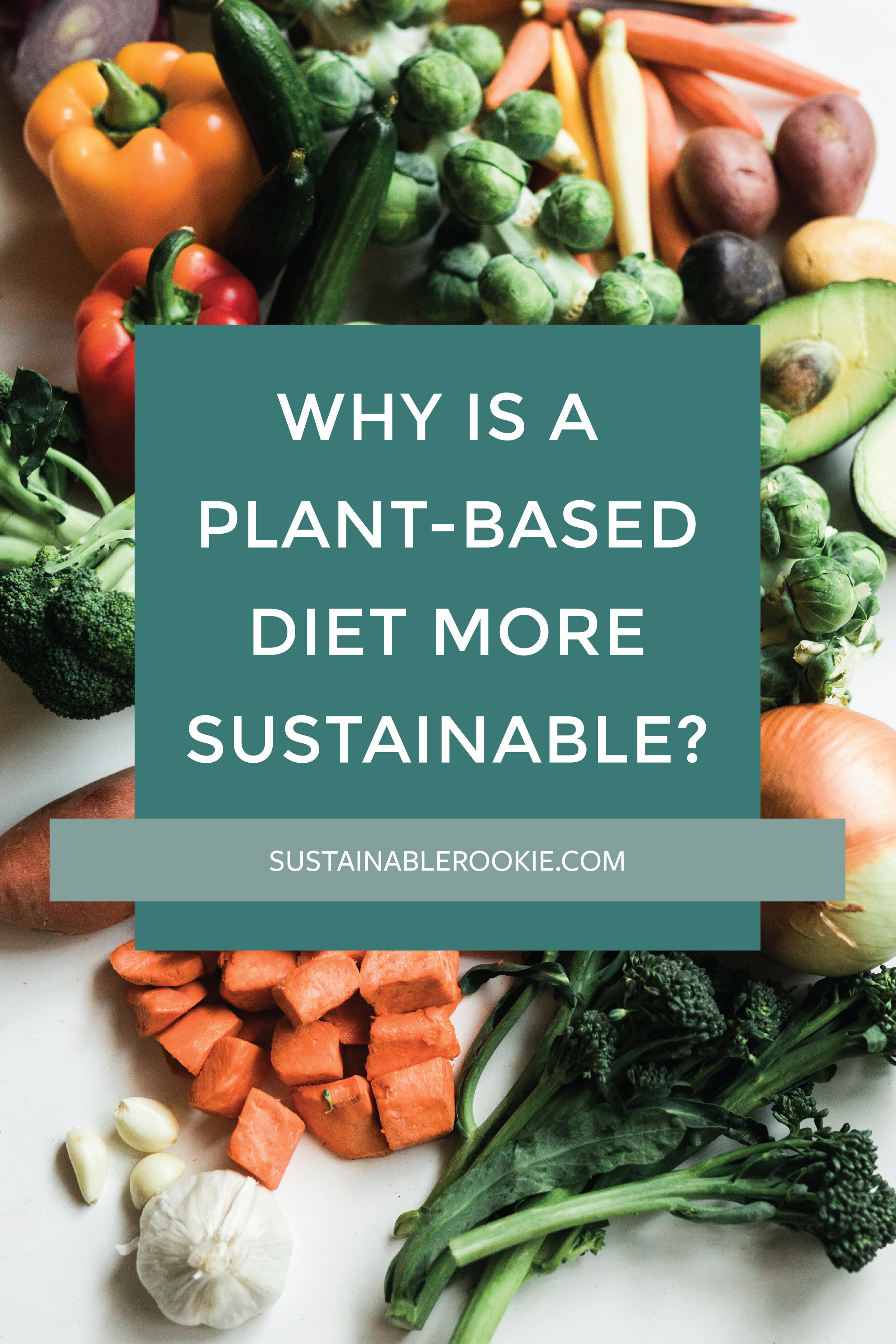Dietitian-Approved Sugar Free Sauces for Clean Eating Success
Dietitian-Approved Sugar Free Sauces for Clean Eating Success
Blog Article
All Concerning Healthy And Balanced Food: Benefits of Embracing Plant Based Options
The discussion surrounding plant-based diets has acquired considerable interest in the last few years. Many individuals are checking out the prospective wellness benefits, dietary advantages, and ecological influences related to these nutritional choices. As people become much more conscious of their food's impact on well-being and sustainability, inquiries arise regarding the functionalities of embracing such a way of living. What certain adjustments can one expect, and how might these selections reshape not only individual health but likewise the earth's future?
Comprehending Plant-Based Diet Plans
Numerous individuals connect plant-based diet plans generally with vegetarianism or veganism, these diet regimens can encompass a vast array of eating patterns that focus on whole, minimally processed plant foods. Such diet regimens commonly consist of fruits, veggies, entire grains, beans, nuts, and seeds, while restricting or removing pet products. This adaptability permits individuals to tailor their nutritional options according to personal preferences and dietary needs. Some may adopt a largely plant-based diet while still periodically consuming meat or milk, typically described as a flexitarian strategy. The emphasis stays on including even more plant foods, which can result in a varied array of meals and flavors. Recognizing these numerous interpretations of plant-based consuming is necessary for valuing its availability and charm in modern food culture.
Wellness Benefits of Plant-Based Foods
The health and wellness advantages of plant-based foods are substantial, supplying a nutrient density advantage that supports total wellness. Research suggests that these foods can enhance heart wellness and play a necessary duty in reliable weight management. By integrating extra plant-based choices, people might enhance their dietary options and promote lasting health.
Nutrient Thickness Advantage
Nutrient thickness plays an essential role in the health and wellness benefits of plant-based foods, making them a compelling selection for those looking for a well balanced diet plan. Plant-based foods, such as fruits, veggies, beans, nuts, and whole grains, are often abundant in important vitamins, minerals, and antioxidants while being reduced in calories. This high nutrient thickness permits individuals to eat fewer calories while still satisfying their dietary demands. Additionally, these foods are loaded with dietary fiber, promoting digestive health and wellness and assisting in weight administration. By including nutrient-dense plant-based options, customers can enhance their general health, sustain their immune systems, and minimize the risk of persistent diseases. Ultimately, the nutrient thickness of plant-based foods underscores their significance in a health-conscious way of living.
Heart Health Improvement

Weight Administration Assistance
Along with promoting heart wellness, a plant-based diet can substantially aid in weight monitoring. This dietary technique emphasizes whole foods such as fruits, vegetables, legumes, nuts, and whole grains, which are usually reduced in calories and higher in fiber contrasted to animal-based items. The high fiber content assists increase satiation, reducing total calorie intake. Plant-based diet plans are frequently abundant in important nutrients while low in undesirable fats, making it less complicated to maintain a healthy weight. Study suggests that individuals who adopt a plant-based way of living often tend to have reduced body mass indexes (BMIs) and experience more effective weight reduction contrasted to those that take in meat-heavy diet plans. Accepting plant-based options is a strategic choice for reliable weight administration.
Nutritional Value of Plant-Based Ingredients
Plant-based ingredients are abundant in crucial nutrients, offering a varied selection of vitamins, minerals, and anti-oxidants that add to general wellness. A contrast of healthy protein sources exposes that while animal products are frequently considered as superior, lots of plant-based options give sufficient healthy protein and various other helpful compounds. Recognizing the nutritional value of these ingredients can assist individuals make educated dietary selections.
Necessary Nutrients in Plants
Nutrient-rich ingredients discovered in plants supply a diverse selection of essential nutrients that contribute substantially to total wellness. These components are abundant in vitamins A, C, and K, which sustain immune feature, vision, and blood clot, respectively. In addition, plants give important minerals such as calcium, potassium, and magnesium, vital for heart health and wellness, muscular tissue function, and bone toughness. The visibility of fiber in plant-based foods help food digestion and advertises a healthy and balanced digestive tract microbiome. Antioxidants, found generously in fruits and veggies, aid combat oxidative stress and decrease swelling. Many plant foods are reduced in calories yet high in nutrients, making them an exceptional choice for those looking for to keep a healthy weight while making sure perfect nutrient consumption.

Contrasting Healthy Protein Sources
Protein sources differ considerably in their dietary accounts, with plant-based ingredients using one-of-a-kind advantages. Unlike animal proteins, which commonly contain hydrogenated fats and cholesterol, plant healthy proteins have a tendency to be reduced in these unhealthy components. Legumes, nuts, seeds, and whole grains are rich in important amino acids, fiber, vitamins, and minerals. Lentils offer high protein web content alongside considerable iron and folate, while quinoa is a full healthy protein, using all nine important amino acids. Furthermore, plant-based proteins are typically gone along with by anti-oxidants and phytochemicals that support total health and wellness. The shift to plant-based healthy protein resources not only enhances dietary consumption yet also lines up with lasting dietary techniques, minimizing ecological influence and promoting long-lasting health and wellness advantages.
Ecological Influence of Plant-Based Consuming
As recognition of environment modification grows, numerous individuals are discovering lasting nutritional options that can significantly lessen their environmental impact. Plant-based consuming has become a substantial contributor to lowering greenhouse gas emissions, which are largely related to livestock production. The growing of fruits, beans, grains, and vegetables generally calls for less resources, such as water and land, compared to animal farming. Furthermore, plant-based diet regimens can result in lowered logging, as less land is required for grazing animals or growing pet feed. By changing in the direction of plant-based choices, customers can support biodiversity and advertise healthier ecosystems. In general, embracing plant-based consuming not just advantages individual health but also stands for a crucial step toward environmental sustainability and preservation initiatives.
Conquering Common Misconceptions
While several individuals identify the advantages of a plant-based diet plan, several false impressions usually hinder them from completely welcoming this lifestyle. A common idea is that plant-based diet regimens do not have sufficient protein; nonetheless, various plant sources, such as vegetables, nuts, and tofu, provide sufficient protein. Furthermore, some presume that this diet is costly, when actually, staples like beans, rice, and seasonal veggies can be rather budget friendly. One more mistaken belief is that plant-based eating is overly limiting, whereas it actually provides a varied variety of foods and tastes. Ultimately, lots of fret that a plant-based diet plan may cause deficiencies, yet with correct planning, people can get all required nutrients, including vitamins and minerals, while enjoying a wide variety of delicious dishes.
Tips for Transitioning to a Plant-Based Way of living
Making the shift to a plant-based way of life can be an enhancing experience, though it often requires some advice to browse the first modifications. Individuals are motivated to begin gradually, incorporating even more fruits, veggies, vegetables, and entire grains right into their dishes while decreasing meat and dairy usage. Dish planning is vital; preparing a regular menu can help ease the change and avoid last-minute unhealthy options. Checking out cooking methods and new dishes can additionally improve the experience and keep excitement regarding plant-based eating. In addition, joining support system or communities can supply inspiration and share important pointers. Finally, remaining informed regarding nourishment guarantees balanced dishes, protecting against shortages while fostering a healthy and balanced, gratifying plant-based lifestyle.
Delicious Plant-Based Dish Ideas
Exploring delicious plant-based meal concepts can influence people to welcome an extra nutritious diet plan. One preferred alternative is a passionate quinoa salad, including cherry tomatoes, cucumber, and a zesty lemon-tahini clothing. Another fave is a full-flavored lentil stew, loaded with carrots, celery, and great smelling herbs, excellent for a soothing dinner. For breakfast, overnight oats made with almond milk, chia seeds, and covered with fresh berries provide a healthy begin to the day. Furthermore, a lively veggie stir-fry with tofu and a variety of vivid veggies can be a quick yet pleasing meal. Ultimately, creamy avocado toast on whole-grain bread, sprayed with seeds and flavors, provides a straightforward yet flavorful snack. These meals showcase the variety and richness of plant-based consuming.

Often Asked Questions
Can a Plant-Based Diet Supply Sufficient Protein?
The concern of whether a plant-based diet regimen can give sufficient healthy protein is common. Many resources, including beans, nuts, seeds, and whole grains, can meet healthy protein needs efficiently, sustaining a healthy and balanced diet for individuals.
Are Plant-Based Diet Plans Ideal for Children?
The viability of plant-based diets for kids relies on careful preparation. Ample nutrients must be assured, including healthy proteins, vitamins, and minerals. With correct advice, such diets Plant Based Beef can support healthy and balanced growth and advancement in kids.
Exactly how Do I Eat Out on a Plant-Based Diet regimen?
Eating in restaurants on a plant-based diet plan entails looking for restaurants with varied food selections, requesting alterations, and exploring vegan-friendly alternatives. Planning ahead and communicating dietary preferences can enhance the eating experience while preserving dietary choices.
What Are Usual Allergens in Plant-Based Foods?
Common irritants in plant-based foods consist of soy, gluten, nuts, and seeds - Plant Based Beef. Individuals adhering to a plant-based diet regimen needs to understand these allergens and read tags meticulously to stay clear of damaging responses and ensure safe usage
Can Plant-Based Diets Aid With Weight Management?
Study shows that taking on a plant-based diet might promote weight-loss because of its generally reduced calorie density and greater fiber content. This mix can improve satiation, assisting people manage their calorie consumption efficiently. Lots of people connect plant-based diet plans mostly with vegetarianism or veganism, these diet plans can encompass a vast variety of eating patterns that prioritize entire, minimally processed plant foods. Nutrient density plays a crucial function in the health and wellness benefits of plant-based foods, making them an engaging option for those looking for a balanced diet. Plant-based diets have actually been revealed to noticeably improve heart health, as they frequently have components that support cardiovascular function. In enhancement to promoting heart wellness, a plant-based diet plan can substantially help in weight monitoring. An usual belief is that plant-based diet plans do not have sufficient healthy protein; nonetheless, various plant resources, such as vegetables, nuts, and tofu, supply sufficient protein.
Report this page